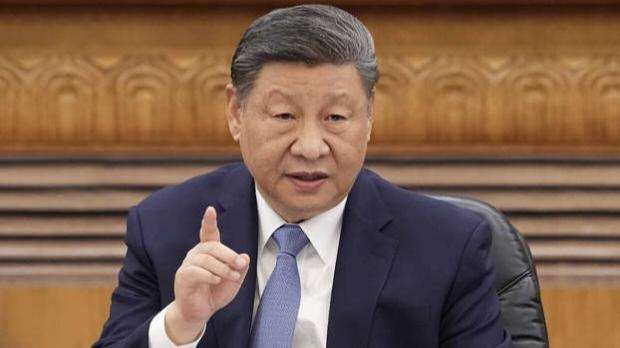Britain's controversial use of hotels to house asylum seekers has been dramatically thrown into the spotlight, not only for the substantial taxpayer cost but also due to direct financial ties to Chinese state-linked firms. The initial revelation that firms with connections to the Chinese government are paid at least £15 million annually to operate three UK asylum hotels—two Holiday Inns in Cheshire and Kent, and a Campanile in Cardiff—has now been set against a backdrop of wider systemic failure and escalating costs.
The hotels are ultimately owned by businesses close to the Communist regime: Holiday Inn's brand owner, Kew Green Group, is owned by the state-run China Tourism Group Corporation, and the Cardiff hotel's operator, Campanile, is ultimately owned by the Shanghai Municipal People's Government. This forms part of a larger Chinese presence in the UK economy, with Chinese individuals, businesses, and state-backed groups owning assets worth some £190 billion, including stakes in Heathrow Airport, power and water utilities, and almost 30 public schools.
Home Office Management Under Fire
The controversy is compounded by a recent report from a powerful parliamentary committee that found the Home Office has squandered billions of pounds on asylum accommodation due to "failed, chaotic and expensive" long-term mismanagement.
Cost Tripling: The value of 10-year contracts with private providers that began in 2019 has tripled from £4.5 billion to a staggering £15.3 billion.
Excess Profits and Lack of Oversight: Despite the soaring cost, the committee found inadequate oversight, with failings going unnoticed. The Home Office has yet to reclaim tens of millions of pounds in excess profits owed by providers like Mears and Clearsprings.
Incompetent Spending: Specific examples of poor financial decision-making were highlighted, including the 2023 purchase of the Northeye estate for £15.4 million—a site sold for only £6.3 million a year prior—which was later found to be contaminated and never used.
Safeguarding Concerns: The report also expressed deep concern over "significant safeguarding failings" in asylum accommodation, amid a backdrop of local protests and reports of incidents such as an asylum seeker being charged with sexually assaulting a teenager in Epping.
Government Response: The current government, which inherited the contracts, has committed to closing every asylum hotel, claiming to have already slashed costs by nearly £1 billion and is exploring the use of military bases and disused properties. Housing Secretary Steve Reed recently stated that progress on ending hotel use would be announced "within weeks." The government's overall goal is to eliminate hotel use entirely within the lifetime of the Labour Government and by 2029 as a final deadline.
UK-China Geopolitical Tensions Escalate
The commercial ties to Beijing are set against a severely strained diplomatic backdrop, including a major espionage scandal and rising tensions over Taiwan.
Collapsed Spy Case: The UK remains mired in controversy following the collapse of a criminal case against two British men, Christopher Cash and Christopher Berry, accused of spying for Beijing under the 1911 Official Secrets Act. The prosecution was abandoned because the government, at the time of the alleged offences, was reportedly unwilling to officially label China as an "enemy" of the UK to meet the evidential standard required by precedent. This has led to a major Westminster blame game, with accusations of political interference to avoid damaging relations with Beijing.
Taiwan Ultimatum: Chinese Ambassador to the UK, Zheng Zeguang, has publicly pressured the UK, stressing that a 1972 commitment to defend China's ownership of Taiwan must be honoured. He recently told The Telegraph that China could cut diplomatic ties with Britain unless political leaders, specifically Sir Keir Starmer, support its claim over the democratic island. Former UK Security Minister Tom Tugendhat strongly rebuked Zeguang's comments, asserting that the issue is "rightly matters for the Taiwanese people to determine" and resisting "Beijing's attempts to distort international law."
The financial entanglement of state-linked Chinese firms in the UK's chaotic and costly asylum system—concurrent with heightened espionage and diplomatic tensions—underscores the complex and high-risk nature of Britain's relationship with China.








.svg)

_2.jpg)